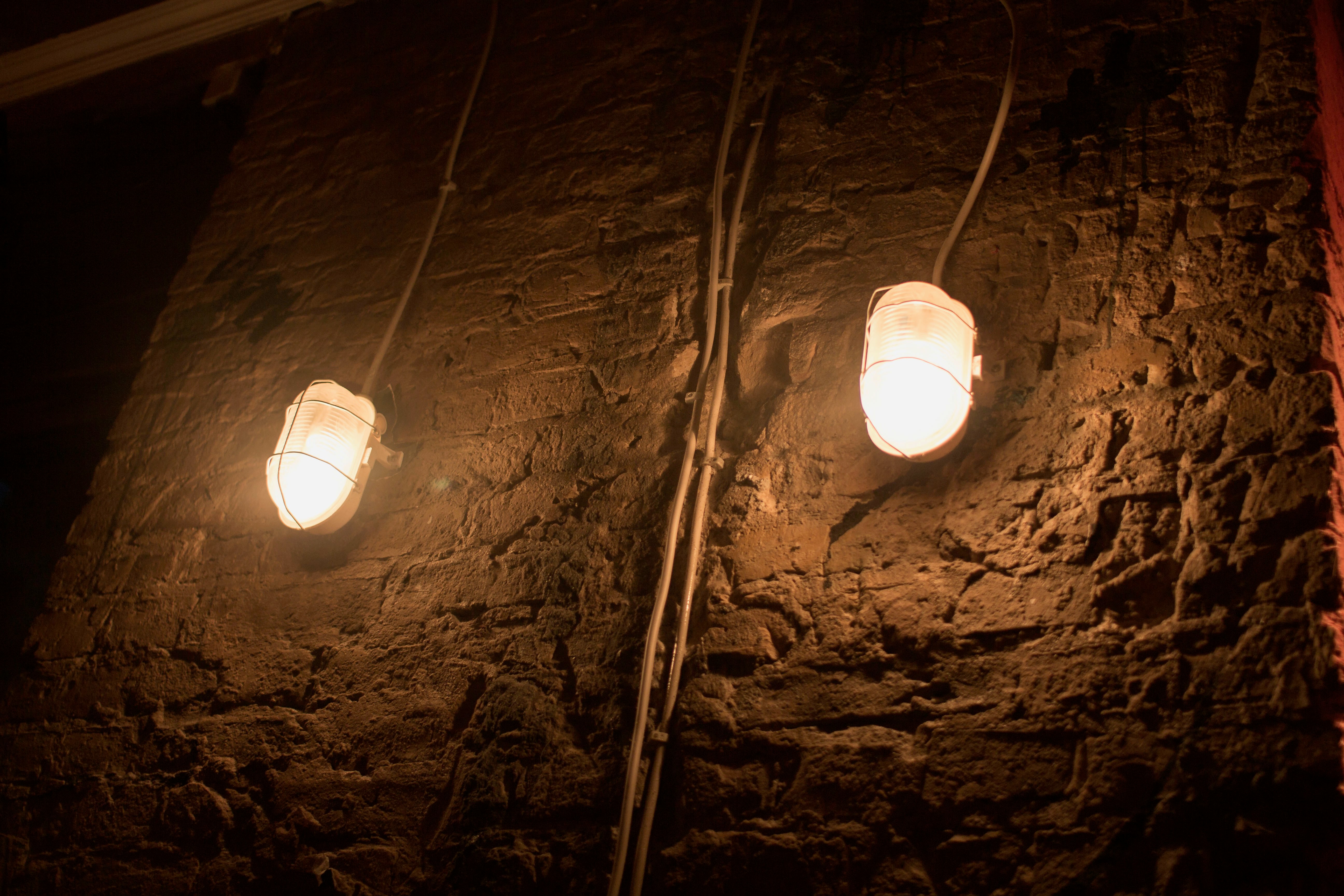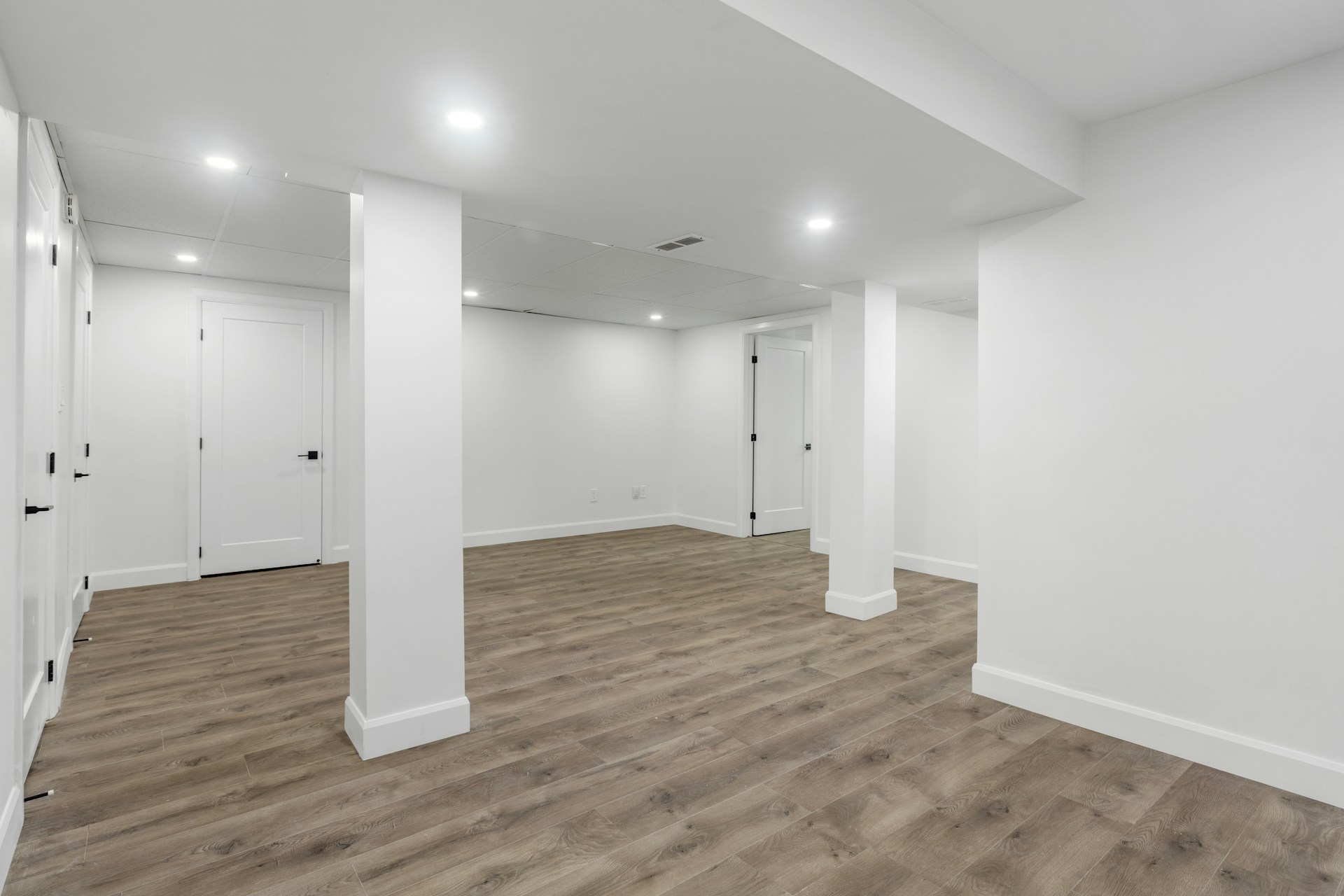Basement Lighting: Creating a Bright and Inviting Space
Basement Lighting: Creating a Bright and Inviting Space
One of the biggest challenges with basement renovations is overcoming the inherent darkness of below-grade spaces. With typically fewer windows and lower ceilings than other areas of your home, basements require thoughtful lighting design to feel bright, spacious, and inviting. This guide will help you develop a comprehensive lighting plan for your basement renovation.
Understanding the Lighting Hierarchy
A well-designed lighting plan incorporates three types of lighting:
1. Ambient (General) Lighting
This provides overall illumination for the space and replaces the natural light that basements lack. Good ambient lighting ensures you can navigate safely and see clearly throughout the room.
2. Task Lighting
Task lighting provides focused illumination for specific activities like reading, working at a desk, playing games, or preparing food (if you have a basement kitchenette).
3. Accent Lighting
This type of lighting adds visual interest, highlights architectural features or artwork, and creates atmosphere.
Overcoming Common Basement Lighting Challenges
Low Ceilings
Many basements have ceiling heights of 7-8 feet, sometimes with ductwork or pipes that hang even lower. Here's how to address this challenge:
-
Recessed lighting: The most popular solution for basements, recessed lights (also called can lights or downlights) don't take up precious headroom while providing excellent ambient illumination.
-
Flush-mount fixtures: Where recessed lighting isn't practical, choose ceiling fixtures that mount flush to the ceiling or with minimal drop.
-
Indirect lighting: Consider cove lighting or LED strips around the perimeter of the room to bounce light off the ceiling, creating a sense of height.
Limited Natural Light
While you can't change the number or size of basement windows, you can:
-
Maximize existing windows: Avoid blocking windows with furniture, keep window treatments minimal, and consider installing glass block windows if you need to replace windows that are in poor condition.
-
Use daylight-mimicking bulbs: Choose LED bulbs with a color temperature of 5000-6500K to simulate natural daylight.
-
Install solar tubes or light wells: If renovation budget and exterior access allow, consider adding solar tubes to bring natural light from the roof down to your basement.
Dark Corners and Shadows
-
Strategic fixture placement: Ensure lighting is distributed evenly throughout the space, paying special attention to corners.
-
Wall-mounted lights: Sconces can brighten walls and eliminate shadows in areas where ceiling lights may not reach effectively.
-
Reflective surfaces: Incorporate mirrors, glossy tiles, or light-colored surfaces to bounce light around the room.
Best Lighting Fixtures for Basements
Recessed Lighting
Pros:
- Doesn't consume headroom
- Clean, modern appearance
- Can be positioned strategically for even light distribution
- Available with adjustable trims for accent lighting
Tips:
- Use 4-inch or 6-inch LED recessed lights for maximum efficiency
- Space fixtures approximately 4-6 feet apart for even coverage
- Install on dimmer switches for flexibility
- Consider "wet location" rated fixtures in areas prone to moisture
Track Lighting
Pros:
- Adaptable and adjustable
- Can direct light where needed
- Good option where recessed lighting isn't feasible
- Can serve as both ambient and accent lighting
Tips:
- Choose low-profile tracks that hug the ceiling
- Use LED track heads for energy efficiency
- Consider track lighting for highlighting artwork or architectural features
Wall Sconces
Pros:
- Add light at eye level where it's often needed most
- Create a warm, inviting atmosphere
- Help eliminate shadows and dark corners
- Can serve decorative purposes
Tips:
- Install sconces at approximately 5'6" to 6' height
- Space them 8-10 feet apart for ambient lighting
- Use uplights to make the ceiling appear higher
- Choose ADA-compliant sconces with minimal projection in tight spaces
LED Strip Lighting
Pros:
- Extremely versatile and low-profile
- Can be installed in coves, under cabinets, along steps
- Creates indirect lighting that adds depth
- Available in various colors for ambiance
Tips:
- Use high-quality strips with good color rendering (CRI 90+)
- Install under stair treads for safety and visual interest
- Create cove lighting around the perimeter of the ceiling
- Consider tunable white options to adjust color temperature
Lighting Layout Planning
When planning your basement lighting layout, consider:
-
Room Usage: Different activities require different lighting levels:
- Home theater: Dimmable, indirect lighting
- Home office: Bright, evenly distributed light plus task lighting
- Gym: Bright, energizing light
- Bar area: A mix of task and mood lighting
-
Ceiling Obstacles: Map out where ducts, pipes, and support beams are located to plan fixture placement accordingly.
-
Control Systems: Consider smart lighting controls that allow you to:
- Create preset scenes for different activities
- Control lighting remotely
- Automate lighting based on time of day
- Integrate with other smart home systems
-
Energy Efficiency: Basements often have lights on for extended periods, so choose energy-efficient LED fixtures with these features:
- ENERGY STAR certification
- Long lifespan (25,000+ hours)
- Low wattage with high lumen output
Basement Lighting Project Example
Here's a sample lighting plan for a 500 square foot basement family room:
- Primary ambient lighting: 12 recessed LED downlights in a grid pattern
- Perimeter lighting: LED strip cove lighting around the room
- Task lighting: Floor and table lamps near seating areas
- Accent lighting: Adjustable recessed spots to highlight artwork and a feature wall
- Mood lighting: Wall sconces on either side of the TV area
- Control system: Smart lighting with dimming capabilities and scene presets
This combination provides flexible lighting for movie nights, game playing, and casual entertaining.
Conclusion
Thoughtful lighting design is one of the most important factors in creating a welcoming basement space. By incorporating a variety of light sources at different heights and brightness levels, you can transform even the darkest basement into a bright, inviting area that feels like a natural extension of your home.
Remember that electrical work should always comply with local building codes and is often best left to licensed professionals, especially in basement environments where moisture concerns may exist.
At Affordable Basements, we can help you design and implement the perfect lighting plan for your unique basement space. Contact us today to schedule a consultation!

Before You Finish Your Basement
Download our comprehensive free guide trusted by 1,500+ Denver homeowners. Avoid costly mistakes and plan your transformation like a pro.


